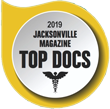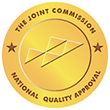-
Individual Therapy
+To reduce the frequency and severity of our patients’ cravings, nicotine addiction, anxiety and depression, mental discomfort and stress, patients undergoing treatment at Recovery Keys’ Jacksonville and/or St. Augustine offices may participate in weekly individual sessions that target and treat damage to the brain from substance abuse. Neurocognitive retraining offers patients drug-free, natural and non-pharmacologic tools to manage stress and anxiety. Neurocognitive retraining techniques include:
- Self-hypnosis, a strategy for tapping in to deep stores of willpower in the unconscious mind.
- Biofeedback with Heart Rate Variability (HRV) training, to promote relaxation, help patients gain more control over stress responses and diminish the urge to use.
- Audio-visual brain entrainment (AVE), which uses lights and tones to guide brainwave activity.
- Aromatherapy may be used to enhance comfort during individual sessions.
In the Neurocognitive Retaining Group, patients discuss integrative mind-body-spirit connections and basic principles in trance and relaxation, self-hypnosis, biofeedback, and guided imagery to help manage symptoms of substance use urges, anxiety, stress, and depression.
-
Understanding Addiction Program
+Facilitated by a licensed addiction counselor, this program provides an introduction to addiction recovery, utilizing Dr. Jerry Gropper’s “Addiction Recovery: A Guide to Growing Up” book as a framework. Over eight sessions, the ‘Understanding Addiction’ program assists patients in focusing on the shared principles underlying many well-known addiction treatment and recovery disciplines, such as the Twelve-Step Model, Cognitive Behavioral Therapy and the Disease/Medical Model of Addiction. The goal of the Understanding Addiction Program is to help patients initiate a process that brings meaningful change to their perceptions, a new understanding of their past, and the courage and motivation to begin making the necessary changes to live a healthier, more authentic life.
-
Twelve-Step Group
+In the Twelve-Step Group, a therapist guides individuals through the process of writing and presenting their own First-Step Inventory. This process helps identify and remove the denial that has fueled their disease, clearly view their destructive behaviors and the consequences, and gain awareness and respect for the strength of the disease that they are battling. Armed with this awareness and compassionately supported by others in the group, Recovery Keys’ patients gain the tools to change self-destructive behaviors and begin to heal.
-
Psychoeducational Groups
+Facilitated by a physician, therapist, nurse and/or doctorate-level staff, the Psychoeducational Group provides information and education regarding the disease of addiction, mental health conditions, general medical conditions, and the effects of drugs and alcohol on the body. Additional topics may include: wellness strategies, the need for abstinence, the risk of switching addictions, identifying relapse triggers, available medical and pharmaceutical treatments and the role of family and friends in aiding or hindering recovery.
-
Primary Therapy Group
+Facilitated by a clinician, this weekly psychotherapy group provides patients the opportunity to process their progress on their treatment plan goals and objectives. The Primary Therapy Group mirrors individual therapy in a group setting, providing a forum for participants assist each other in the change process by providing objective feedback.
-
Process Group
+The goal of the Process Group is to build trust, to encourage open and honest communication, and to promote an environment where individuals feel safe to share their struggles and work collaboratively to understand one another. The Process Group is “here and now” focused. Patients learn and practice new skills for dealing with their thoughts and emotions, and for responding to the thoughts and emotions of others. These new skills enhance self-awareness, offer new ways of relating to people, and teach behaviors that assist patients in recovery in fostering positive change and making progress toward achieving their personal goals.
-
Family Education and Support
+Addiction doesn’t only harm the individual – it hurts the whole family, breeding anger, resentment and misunderstanding. Because family support can be a critical component of recovery, individual therapy is complimented with family education about addiction and recovery to help loved ones overcome the fear and confusion that addiction can wreak on everyone it touches.
-
Nutrition and Lifestyle Group
+Facilitated by a nutritionist, the Nutrition and Lifestyle Group helps individuals establish and maintain healthy eating habits and incorporate improved lifestyle changes into their lives. Eating a balanced diet helps the body heal from the damage done by addiction to drugs or alcohol, and can help restore the balance in the brain that addiction alters. Changes to lifestyle also provide similar benefits – strengthening the body and the mind, improving mood, lowering anxiety, relieving symptoms of depression, and providing a healthy alternative to past unhealthy behaviors.
-
Recreational Therapy Group
+Facilitated by a clinician, the Recreational Therapy Group provides a creative outlet for patients to explore their thoughts and feelings and improve their ability to manage their addictive behaviors. This group utilizes a variety of modalities such as art, music, movement, and recreational leisure activities to assist patients with restoring social and cognitive functioning, build confidence, develop coping skills, and improve their sense of personal well-being.
-
Skills Group
+Coping skills, communications skills and life skills are just some of the types of skills that recovering addicts need to sustain long-term sobriety. The Skills Group is an eight-week rotation facilitated by a therapist that helps individuals in recovery develop skills to help them improve their relationships, communicate effectively and avoid relapse. Subjects covered include: recovery training, relapse prevention, spirituality, physical wellness, relationships skills, symptom management, anger management, communication/assertiveness skills, and employability skills.
-
Smoking Cessation
+Quitting smoking can be one of the best things anyone can do for their health and longevity.
Facilitated by doctorate-level staff, the Tobacco Cessation group meets weekly in our St. Augustine and Jacksonville offices to discuss ways to reduce nicotine use, and the severity and frequency of nicotine cravings. Patients are offered a combination of tobacco cessation methods that studies have shown are effective in helping people quit smoking, including:
- Health education and motivational interviewing, in which people explore and resolve their uncertainties about changing their behavior
- Nicotine replacement information.
- Self-hypnosis.
- Biofeedback with stress management breathing techniques.
- Relaxation and imagery procedures to reduce smoking urges.
Smokers are encouraged to combine methods for an individualized tobacco cessation experience. Participants keep daily smoking cessation logs to record smoking urges, attempts to stop smoking and skills used to stop smoking. Blood pressure, pulse and ventilation are monitored, allowing participants to see how quitting smoking starts to benefit their health almost immediately.
St. Augustine
St. Augustine
Jacksonville



















